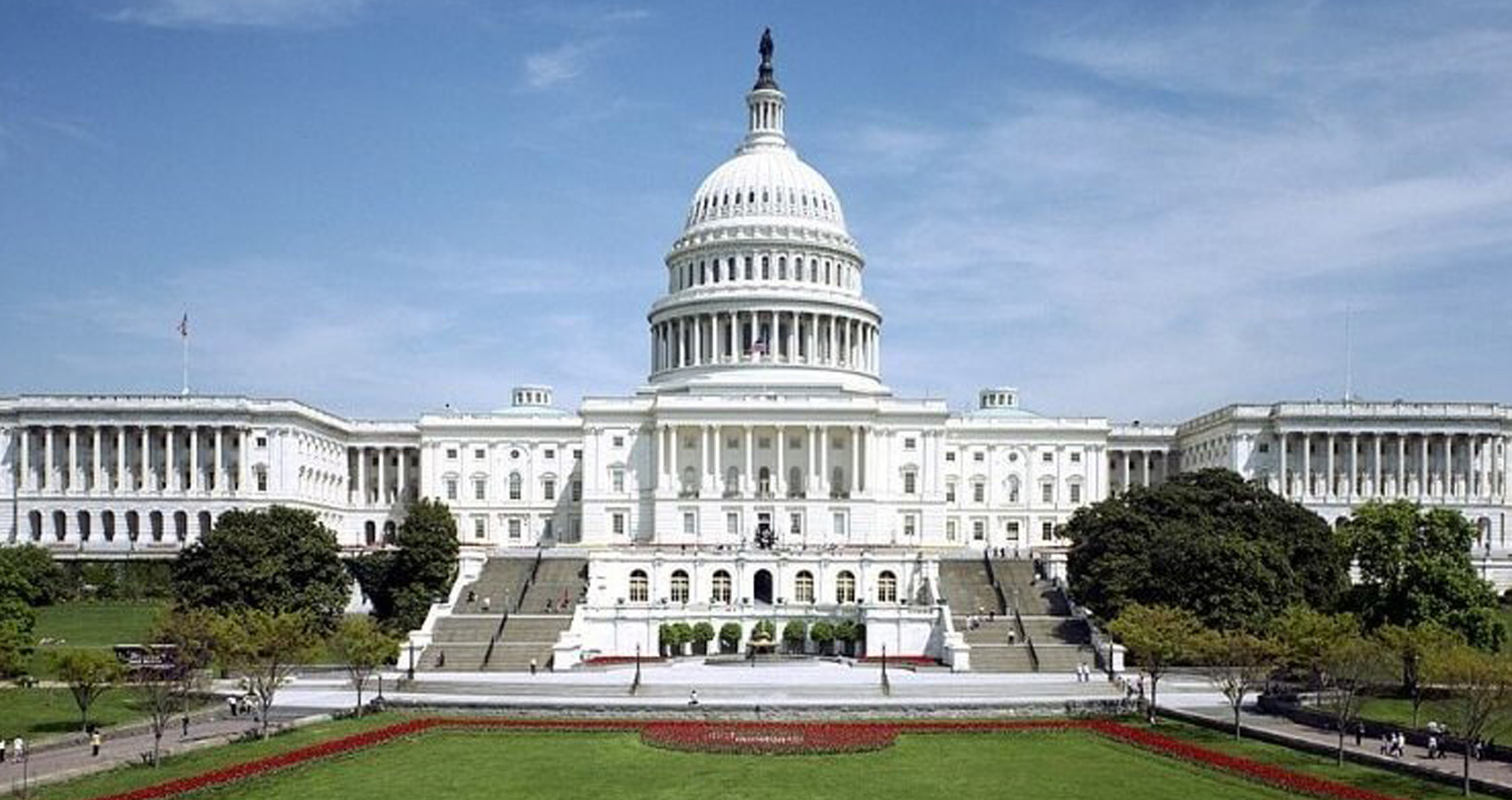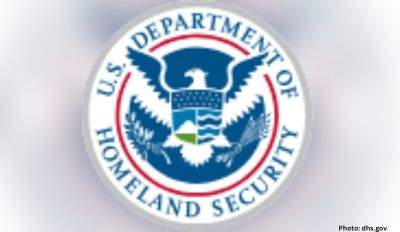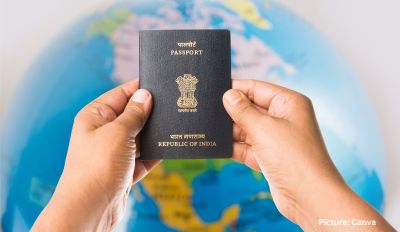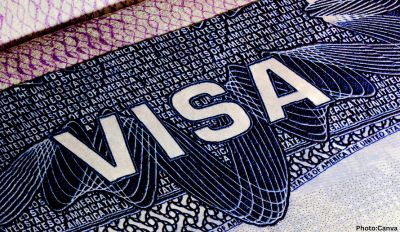Over 60 members of the US Congress, including all four members of the ‘Samosa Caucus,’ wrote a letter to President-elect Joe Biden Dec. 16, urging him to preserve work authorization for H-4 visa holders. H-4 EAD is granted to the spouses of H-1B visa holders who are on track to get their green cards.
“We respectfully request that the Department of Homeland Security publish a Federal Register notice on day one of your administration that would extend the validity period of all expired H-4 EADs. We are confident that your incoming Secretary of the Department of Homeland Security will rectify the systemic processing issues that have been created by the Trump Administration,” wrote the members of Congress.
The revocation of H-4 work authorization is the Sword of Damocles hanging over the heads of more than 100,000 women from India since the advent of the Trump administration. H-4 visa holders are the dependent spouses of H-1B workers and largely have skills comparable to those of their spouse. However, they had not been allowed to work until 2015, when former President Barack Obama, via executive order, allowed them work authorization, known as H-4 EAD.
Shortly after taking office, President Donald Trump immediately stated his intention to rescind H-4 EAD. A Notice of Proposed Rulemaking — which has passed almost all procedural hurdles — currently rests in the Office of Management and Budget’s Office of Information and Regulatory Affairs for final approval.
Save Jobs USA filed a lawsuit in 2016 against the Department of Homeland Security, alleging that foreign workers were competing with and replacing American workers.
H-4 visa holders with work authorization are not limited to the types of jobs they can pursue.
The DC Circuit Court of Appeals ruled last November that H-4 EAD was in fact negatively impacting American workers: H-1B workers were remaining in the U.S. longer than they might have, since their spouses now had work authorization. Thus, they now faced increased competition for employment from H-4 and H-1B visa holders.
The Circuit Court has thrown the case back to a lower court.
In their letter to Biden, the 60 members of Congress — including Reps. Ami Bera and Ro Khanna, D-California; Pramila Jayapal, D-Washington; and Raja Krishnamoorthi, D-Illinois, framed the issue as one of gender equality.
“This rule presented an important step towards rectifying gender disparities in our immigration system as around 95 percent of H-4 visa holders who have secured work authorization are women,” wrote the members of Congress.
“Before the rule was granted, many women on H-4 visas described depression and isolation in moving to a new country and not being allowed to work outside of the home. Unfortunately, these women are losing and will continue to lose their jobs until this is put right, disrupting the lives of their families and the functioning of employers in our districts,” wrote the lawmakers.
The organization Save H4 EADs conducted a survey of 2,400 of its members in 2018. The survey found that 59 percent have postgraduate or professional degrees and above and 96 percent have a bachelor’s degree and above.
About 43 percent purchased a home after receiving work authorization, and 35 percent of them bought a home over $500,000. Forty-nine percent of workers with H-4 EAD have annual individual income of over $75,000. Sixty percent pay taxes of more $5,000. Five percent have started their own businesses, creating employment for American workers.
Meanwhile, in a major win for H-1B workers, the Ninth Circuit Court of Appeals Dec. 16 ruled that computer programming can be considered a specialty occupation, stating that U.S. Citizenship and Immigration Services’ denial of a visa for a computer programmer was “arbitrary and capricious.”
Immigration attorney Cyrus Mehta cheered the ruling. In a blog post, Mehta said: “While the Ninth Circuit’s decision in Innova Solutions is doubtless a victory for U.S. technology companies who employ foreign workers as computer programmers, the decision has broader implications, as well. For one, the decision is a refreshing rebuttal to USCIS’s longstanding practice of challenging computer programming on specialty occupation grounds.”
The Indian American attorney noted that this was the first time a circuit court has ruled in favor of the H-1B petitioner, adding that petitioners have won similar decisions in lower courts.
On March 31, 3017, two months after President Donald Trump took office with his “Buy American, Hire American” ethos, USCIS released a memo stating that computer programming would no longer be considered a specialty occupation. The agency noted that some programmers hold only an associate’s degree or less.
“As such, it is improper to conclude based on this information that USCIS would “generally consider the position of programmer to qualify as a specialty occupation,” noted the USCIS memo.
Current law requires H-1B workers to possess a bachelor’s degree or higher, with academic credentials specifically related to their prospective job duties.
In 2017, USCIS had denied an H-1B visa to Dilip Dodda who was scheduled to work for Santa Clara, California-based Innova Solutions as a programmer analyst. Dodda was denied his visa: USCIS noted that computer programming was not a specialty occupation.
Dodda had more than 10 years of experience in computer programming. Innova had planned to assign him to work for one of its clients, Change Healthcare Operations. Dodda would provide consulting services on Change Healthcare’s patient billing and payment system, which required knowledge of several programming languages.
However, USCIS noted in its response to the lawsuit that Innova had stated in its Labor Certification Application that the position in question was a “Wage Level 1 entry position.”
Innova provided to USCIS a list of about 14 functions that Dodda would perform, including writing script, testing beta sites, performing initial debugging, and rewriting code to fix buggy sites. USCIS nonetheless denied Innova’s petition for Dodda.
In its lawsuit, Innova contended that USCIS failed to properly consider the evidence and did not articulate any reasonable basis for its decision. It stated that the agency’s decision therefore must be set aside as arbitrary, capricious, and an abuse of discretion.
In 2019, United States Magistrate Judge Virginia Demarchi denied Innova’s lawsuit against USCIS, ruling that Innova had not sufficiently established that Dodda was to be engaged in a specialty occupation.
Demarchi said in her ruling that USCIS had noted that even interns could be classified as computer programmers. She ruled in favor of USCIS, stating that Innova failed to submit sufficient evidence “showing the unique or complex nature of the position, or how this position differs from other similar positions within the same industry.”
Innova appealed the lower court’s decision. Judge John Owens, writing for the three-judge panel at the Ninth Circuit, noted that USCIS relied solely on the Labor Department’s Occupational Outlook Handbook, which states that most computer programmers normally have attained a bachelor’s degree or higher, and that a bachelor’s degree is the typical level of education most programmers need to enter the field. “USCIS’s decision in light of that evidence was arbitrary and capricious,” ruled Owens. “It offered an explanation for its decision that ran counter to the evidence before it.” Mehta said in a blog post
Lawmakers Urge President-Elect Joe Biden to Preserve Work Authorization for H-4 Visa Holders











